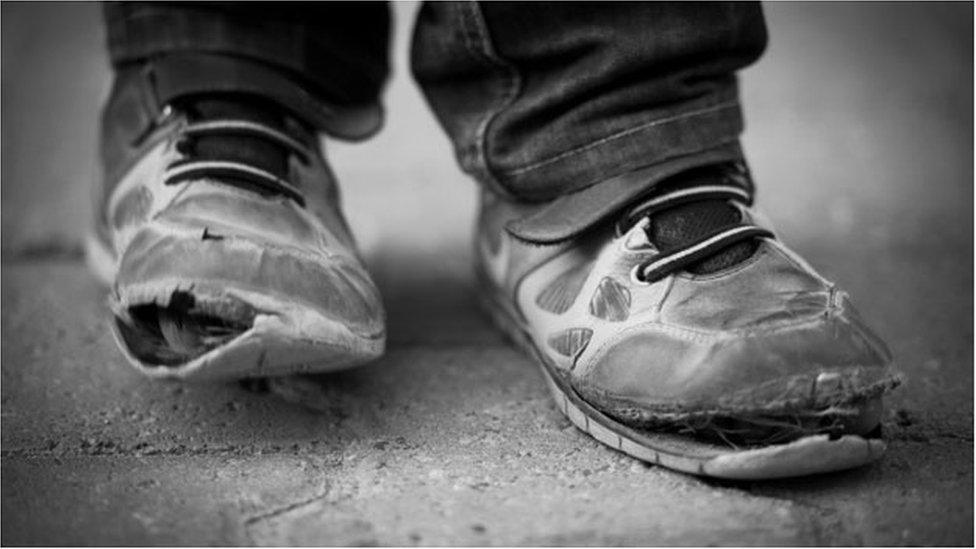Child poverty: Wales is the only UK nation to see increase
- Published
- comments

Ministers had previously aimed to end child poverty in Wales by 2020
Wales was the only UK nation to see a rise in child poverty last year, according to research by charities.
It suggested 29.3% of children were in poverty in 2017-18, a rise of 1%.
Sean O'Neill, of Children in Wales, said parents had to make "impossible choices" between feeding themselves or their children.
The Welsh Government blamed policies set by the UK government, which said it was helping families improve their lives through work.
The research by Loughborough University was commissioned for the End Child Poverty Network, a coalition of organisations which includes Children in Wales, Oxfam Cymru, Barnardo's Cymru and Save The Children.
It suggested more than 206,000 Welsh children were living in poverty in 2017-18.
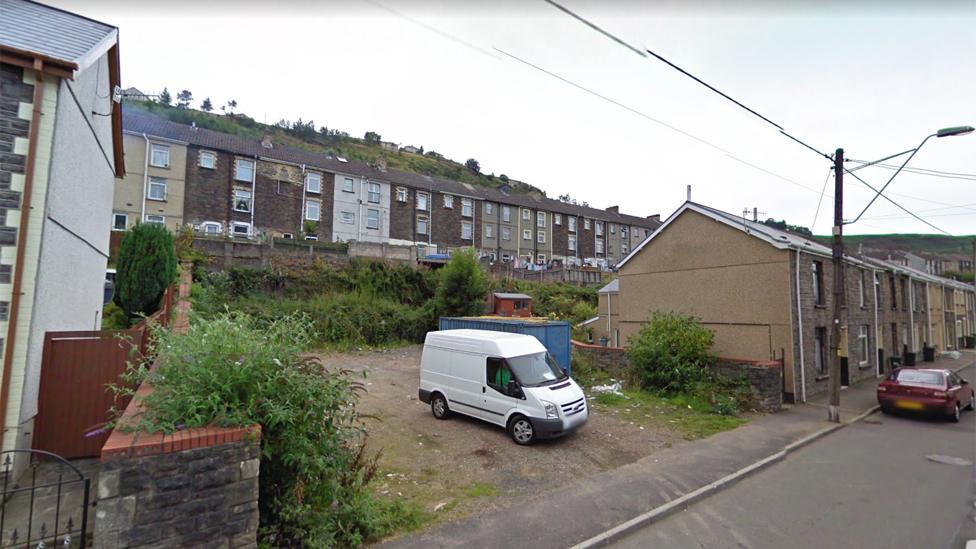
Almost half of children living in Penrhiwceiber are said to be in poverty
A child is considered to be growing up in poverty if they are living in a household where the income is below 60% of the median income.
It found the Cardiff South and Penarth, Cynon Valley and Rhondda constituencies had the highest proportion in Wales - all at 35% - after housing costs are taken into account.
Around a third of children living in valleys council areas like Blaenau Gwent, Caerphilly, Merthyr Tydfil and Rhondda Cynon Taf were also in poverty.

But the figures also break down child poverty into much smaller areas of deprivation, ward-by-ward across Wales.
Penrhiwceiber near Mountain Ash in the Cynon Valley has nearly half of its children in poverty, according to the research.
Three wards in Wrexham are proportionately the next worst, followed by two inner city areas of Cardiff - Butetown and Grangetown.

A snapshot of child poverty during the year suggests seven out of the 10 wards in Wales with the highest numbers of children in child poverty are in Cardiff. It estimates there are 2,342 living in Grangetown, followed by 2,183 in Ely.
Ysgol Glan Morfa is a Welsh-medium primary school in Splott, Cardiff, an area with an estimated 35% of children living in poverty.
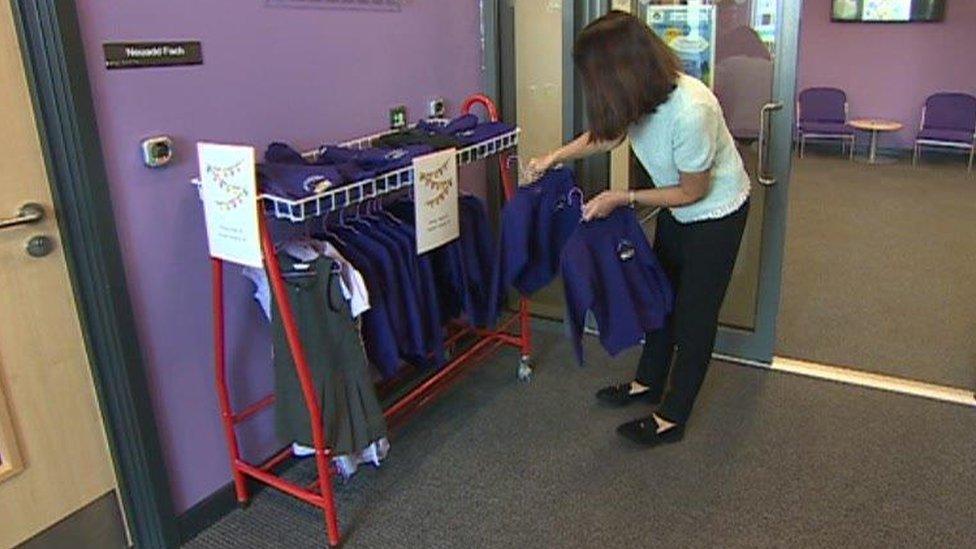
Ysgol Glan Morfa in Cardiff recycles uniforms to help parents cut costs
Head teacher Meilir Tomos said: "We realise that there are children in our school whose families are struggling in different ways.
"We believe it's vitally important for children to have the best start in life possible and there are many ways in which our school supports families."
As well as a breakfast club, there is a scheme to donate school uniforms which pupils have outgrown so other parents can buy them for a nominal amount.
Mr O'Neill said: "In far too many parts of Wales, growing up in poverty is no longer the exception, with more children expected to get swept up in poverty in the coming years.
"What this means on a day-to-day basis is that parents are having to make really impossible choices.
"They have to make a choice about whether they feed their children, go without food themselves, and things that many people take for granted - like heating and leisure facilities.
"Parents are really struggling just to get by."
As well as calling for a new strategy to tackle poverty, the group of charities want Wales' political parties to commit themselves to "ambitious" child poverty reduction pledges in the run-up to the 2021 Assembly elections.
It also wants a "credible" child poverty reduction strategy from the UK government, including restoring the link between benefits and inflation and investing in children's services.
Rachel Cable from Oxfam Cymru agreed UK welfare policy had had a large impact, but said the Welsh Government needed to take responsibility as well.
"We had a minister with specific responsibility for tackling poverty. That role has now been scrapped and the tackling poverty role is across all cabinet portfolios.
"While I welcome that breadth of responsibility there needs to be some coordination from the centre… there needs to be some leadership and we need a strategy and ambitious targets."
'Feeling the impact'
The UK government's Department for Work and Pensions (DWP) said it recognised some families needed more support and it continued to spend £95bn a year on working-age benefits.
It said the study was based on estimates rather than actual measurements.
"Children growing up in working households are five times less likely to be in relative poverty, which is why we are supporting families to improve their lives through work," said a UK government spokeswoman.
"Statistics show employment is at a joint record high, wages are outstripping inflation and income inequality and absolute poverty are lower than in 2010.
The Welsh Government said the report was not surprising and believed initiatives to help people pay council tax and free school meals would help tackle the problem.
"Analysis by a range of respected organisations has predicted a significant rise in levels of poverty, including child poverty, in the coming years as a direct result of the UK government's tax and welfare reforms," said a spokeswoman.
She added that the first minister had appointed Lesley Griffiths as lead minister "to ensure that Welsh Government's budget planning process has maximum effect in tackling poverty".
- Published4 March 2019
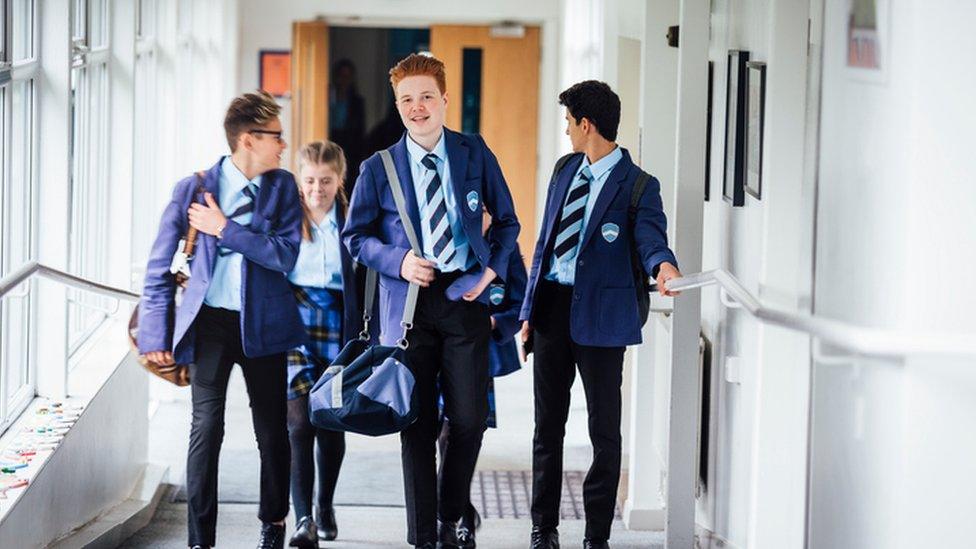
- Published10 February 2019

- Published23 February 2018
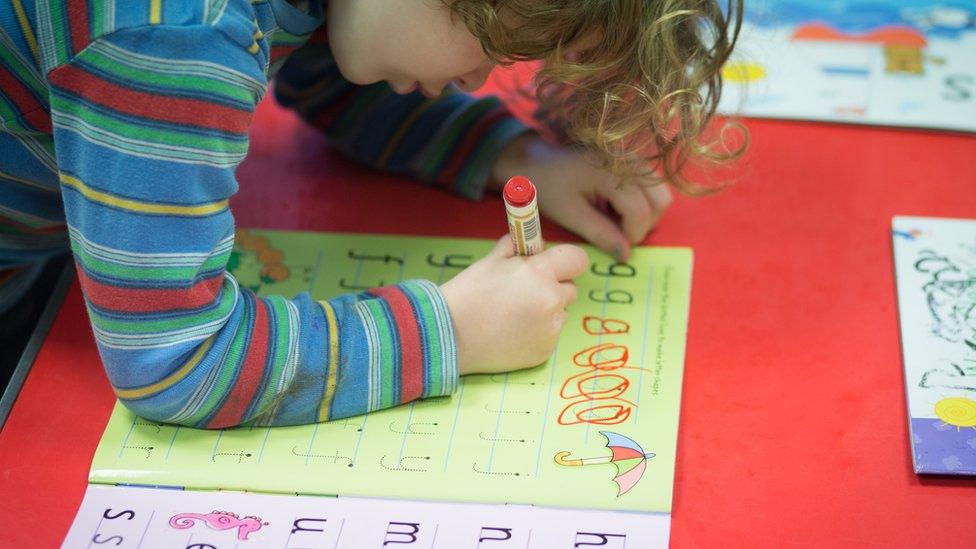
- Published19 January 2018
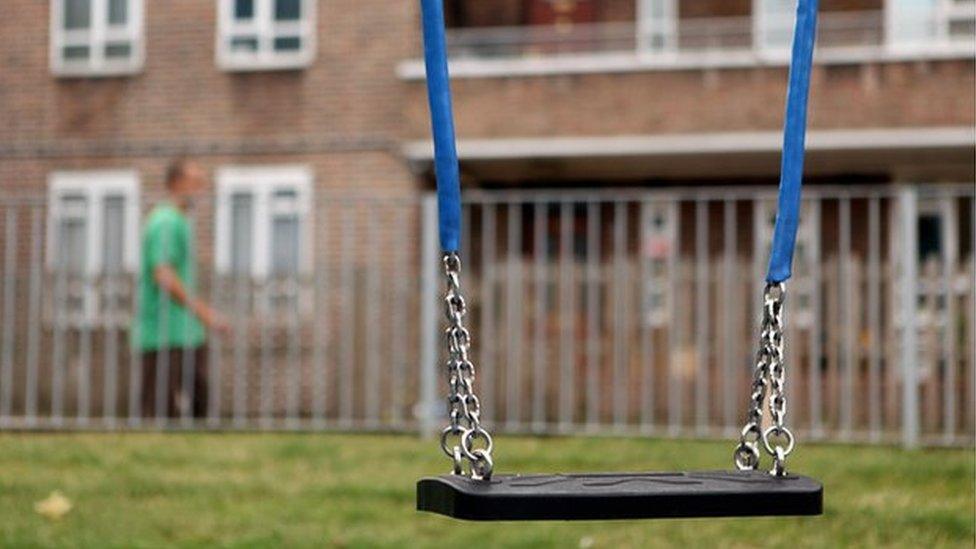
- Published13 December 2016
